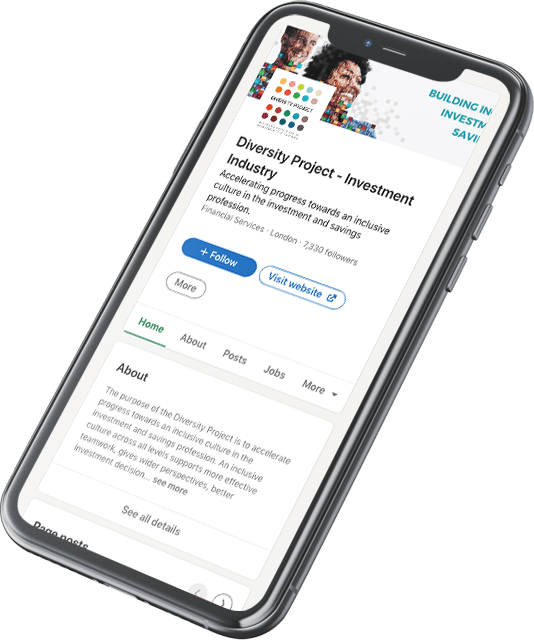As evidence mounts to prove that diverse investment teams achieve better risk-adjusted returns, asset managers are recognising the need to improve the diversity of their workforce. Recruiting more women, ethnic minorities and people with different educational and professional experiences would seem an obvious first step. Hiring candidates from a wide variety of backgrounds creates a virtuous circle because people want to work for inclusive companies. But is recruitment too simplistic an answer?
Research has shown that men and women invest differently. Having a male team member increases the probability of selecting higher risk investments and can also increase loss aversion, according to Cornell University. Morningstar found that women hold onto their positions longer than men, demonstrating conviction and reducing transaction costs.
Diversity also helps asset managers to win business as consultants and pension funds increasingly seek out diverse teams. A core manager research belief of Mercer is that diverse teams with shared values are more likely to outperform.
Michael Kinney, senior researcher in Mercer’s equity boutique, comments: “If ever there was a free lunch in investing, we think it’s very likely that the secret sauce in this dish would be diversity. We have up and downgraded managers where diversity has been a factor in the decision.”
And the UK’s Environment Agency Pension Fund evaluates gender diversity as part of manager selection. Faith Ward, chief responsible investment and risk officer comments:
“We firmly believe a better balance will lead to more robust, sustainable teams, which will lead to better financial performance over the long term.”
Jane Welsh, a former senior investment consultant with Willis Towers Watson, believes cognitive diversity is what investors want, but that is it hard to measure. She also notes that although it is easier to gather data on gender, ethnicity and educational background, these are only proxies for cognitive diversity.
Mercer’s Kinney describes a US-based investment team mostly comprised of women of Asian descent with similar educational backgrounds and personalities. They hired a middle aged white man to introduce a new perspective.
Diverse teams are not without challenges. They require a long-term commitment from employers to develop a management style that harnesses their talents. Teams with a plethora of viewpoints can be hard to manage and take longer to reach decisions. Taken to extremes, different points of view can lead to conflict and a failure to cooperate, according to Kinney.
Despite these insights, asset management remains fairly homogenous; just 15% of funds globally were managed by women as of end-2015, according to Morningstar.
Can recruitment change that? Legal & General Investment Management (LGIM) is working towards a 50/50 gender split in senior management by 2020 for instance. It includes women on all short lists and uses diverse recruitment panels, according to Lesley Martin, head of diversity and inclusion.
There are commercial reasons for getting recruitment right. Surprisingly, most asset managers (over 75% of 39 firms surveyed by Aviva Investors) have no gender-related targets for recruitment. However, half the respondents have initiatives in place to retain women.
The Women in Finance Charter aims to spur firms into action by obliging signatories to set targets and link executive remuneration to their progress. However, hiring senior women is easier said than done in sectors with few women at the top. Oliver Wyman found that women are least represented in alternatives and real estate, running 11% and 9% of funds, respectively.
The lack of female leaders is also due to women leaving the industry. Childcare is a factor but there are other issues such as inflexible working patterns and “pockets in the industry where aggressive cultures prevail,” according to Oliver Wyman.
Many asset managers are acknowledging the need for flexible working, among other cultural adjustments. In this respect, Nordic managers are ahead of the game, according to Lauren Juliff, head of UK institutional at Skagen Funds. She comments:
“In Scandinavia, raising a family is not seen as a woman’s job and flexibility is offered to all. There is no stigma attached. Giving employees flexibility to play a part in family life makes them even more committed to the firm and energised to do a good job.”
Returner programmes are addressing the industry’s lack of female leaders by welcoming women back after career breaks. Whereas most schemes offer short-term placements, M&G Investments encourages returners to apply for all its full-time vacancies, for instance, providing coaching and mentoring, and the HR team works with staff on interview techniques. The issue is talent and the gap in skills, according to Colette Comerford, diversity and inclusion manager at M&G.
Succession planning can also broaden the talent pool. Knowing that men are more likely to put themselves forward for promotion, LGIM’s HR team works with managers to identify strong female candidates.
Graduate recruitment has a huge part to play. Investment2020, which offers access to school leaver and graduate jobs, usually with a year’s fixed contract, is tackling social mobility. Last year, 220 roles were created across its 29 partner companies.
Recruiting a diverse workforce is the first piece of the puzzle. What happens next is equally important in terms of retention and career development. The Diversity Project, an alliance of UK industry leaders formed last year, recognises the complexity of the solution by forming multiple work streams looking at all factors from data analysis to returnships.
According to Helena Morrissey, chair of the project, it aims to:
“achieve enough change in five years so that when you look around your business then, and not just in the physical office, but including those colleagues using technology to work remotely, you see a clear broad diversity of talent”.
For that to be achieved, asset managers need to be more proactive in recruiting people who bring a multitude of perspectives to the complex challenge of investing.





